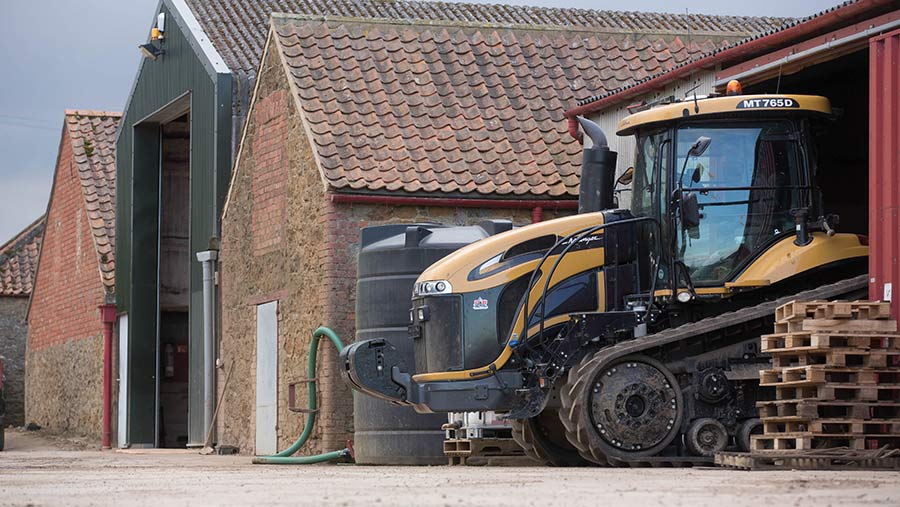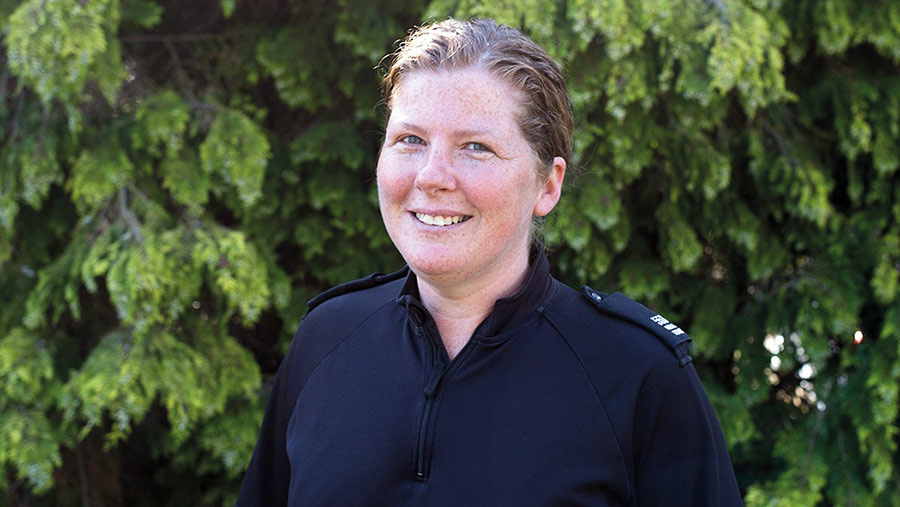A police officer’s highs and lows of fighting rural crime
 © Tim Scrivener
© Tim Scrivener Dealing with everything from badger-baiters and tractor thieves to livestock worrying and hare-coursing is all in a day’s work for a rural police officer, according to PC Kelly Tones.
Having recently joined Leicestershire Police’s newly expanded rural and wildlife team, she’s also conscious that people in urban areas are often unaware of the extent and seriousness of rural crime.
“A lot of town and city dwellers think life in the countryside is idyllic and underestimate the impact of crime,” says Kelly, who covers a patch near Market Harborough.
See also: Lincolnshire police set up cameras to catch rural criminals
“They might think a tractor being stolen is akin to their car being taken and that the farmer simply gets the insurance money and buys a new one. But what if they’re in the middle of harvest?
“They probably can’t borrow a neighbour’s because they’ll be using it. It might take ages to get a replacement and the cost might have rocketed in the meantime.”

Kelly Tones © Leicestershire Police
Kelly sometimes encounters a similar attitude to hare-coursing.
“People aren’t aware of the knock-on effects, such as damage to fencing and crops. And then there’s all the upset, stress and fear it causes. There’s the constant worry for a farmer of the situation escalating or of the perpetrators coming back.”
Bridging this gap in understanding between town and country is one of her aims. She has always had close ties to the countryside, but has been working on a more urban beat for the eight-plus years she’s been in the force.
She’s also keen to improve empathy and communication between the police and the farming community.
“All police officers care, but if you grew up in the countryside you’re really invested in fighting rural crime. I’ve seen how it has directly affected friends.
“I can understand why the farming community is at times frustrated, but if they don’t report crime there’s no chance the perpetrators will be caught.
“If we can build their confidence in us, they’ll tell us more and, in turn, we’ll be more able to help. Otherwise it becomes a vicious circle.”
Even if someone only has sketchy information, she urges them to share it with the police as it can help highlight a pattern or reveal an emerging trend.
“If you only get half of a registration plate, that could be the missing part of the jigsaw because someone a mile away might have already given us the other half,” she says.
“Remember – if something doesn’t look right, it probably isn’t. You have an innate sense of what’s right and wrong and it’s not often your gut is wrong.”
In her patch, trailers and ATVs have been targeted recently, along with tractor GPS systems.
“There has also been livestock attacked by dogs, either because they’ve been let off-lead irresponsibly, or have escaped from gardens. Farmers, quite rightly, get very vexed about this.”

© Leicestershire Police
Across Leicestershire, as elsewhere, there have also been instances of poaching, underground internet cables being ripped up for the copper, and even badger-baiting.
“Unlike hare-coursing which is often done very blatantly, badger-baiting usually happens under the cover of darkness and is hugely secretive.
“Part of me hates working on a case like that because it’s so distressing, but I also want to make sure those who take part are brought to justice.”
When it comes to trying to prevent farm theft, whether it’s tractors, tools or horse tack, a lot comes down to common sense, stresses Kelly.
“It’s very hard to completely stop a criminal who is totally determined, so the aim should be to make it as difficult for them as possible.
“If you’ve made it really difficult, they’ll go elsewhere – but if they then get there and it’s equally hard they’ll move on from there too. Ultimately, if that keeps happening, they’ll be thwarted.”
Taking some simple steps can help, although in practice farmers often overlook these, especially when it’s all hands to the pump at particularly busy times.
“I can understand the practical problems they present. The more you slow a would-be criminal down by having locks and extra gates, for example, the more you inconvenience yourself.
“I also understand why farmers might think: ‘Why should I have to spend hundreds of pounds to keep my possessions safe?’
“But measures such as locking gates and sheds, never leaving keys in vehicles, not leaving trailers in yards, installing trackers in vehicles, and having simple CCTV systems, security lights and alarms make a big difference.”
Kelly advises people to call 101 (or use the “Report a crime or incident” option online) for non-emergency reporting; and to ring 999 if they see a crime in progress, but not to record it on their phone if it risks antagonising the situation.
“Don’t challenge intruders. They could be part of an organised crime group, wanted for a string of offences, and facing long prison sentences, so they could be desperate to get away. You never know what they’ll do or if they’re carrying a weapon.
“Keep yourself safe and don’t get involved. Remember – your safety is the most important thing.”
A career for you?
Farmers’ sons and daughters can make fantastic police officers, says Kelly.
“If you’ve grown up on a farm, you won’t be afraid of hard work and you’ll already be familiar with a way of life that isn’t nine to five. You’ll also understand the value of community, plus have a strong sense of right and wrong.”
Anyone considering joining the police could, she suggests, get an insight by applying to be a “special”. “You get great training and, whether you ultimately become a cop or not, you learn lots about life and it’s great for your CV.”
